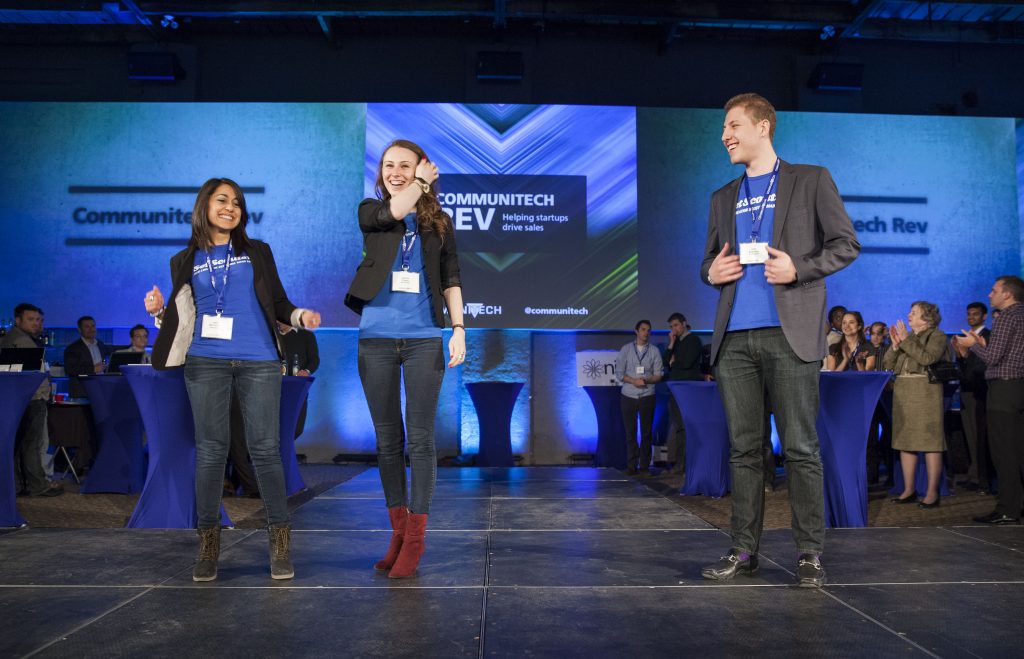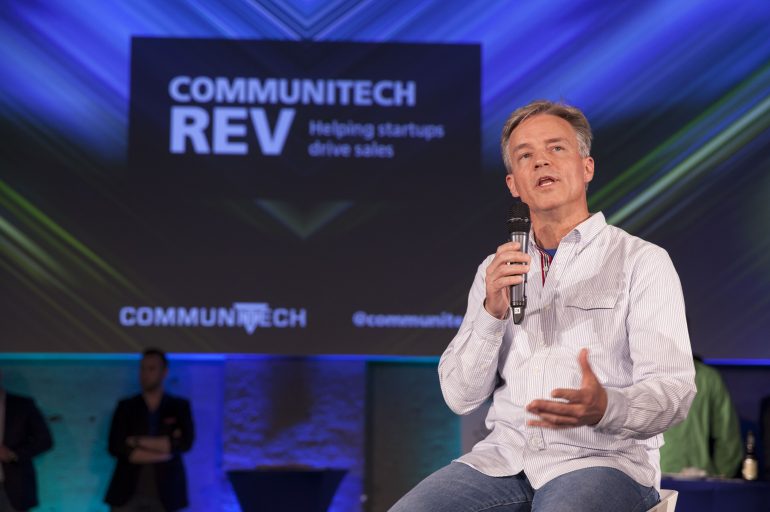I will admit some confusion when Communitech announced that it was shutting down its HYPERDRIVE accelerator program in favour of Rev.
It wasn’t specifically the shuttering of HYPERDRIVE. At the time, Steve McCartney, VP of Startup Services at Communitech, told BetaKit that HYPERDRIVE was launched to fill a specific need that is no longer a concern. “In 2012, we were worried we would lose our best startups to the U.S. and HYPERDRIVE was designed to address the perceived lack of early stage mentorship and investment available in Canada,” he said. “That’s simply not a worry anymore.”
“We stuck our head up and realized the world had changed.”
– Iain Klugman
It was a sentiment echoed by Iain Klugman, CEO of Communitech at the recent CABI Summit in Kitchener-Waterloo. While noting that as an early-stage seed accelerator, HYPERDRIVE had “done pretty well,” Klugman was also clear on the program’s limitations. “We stuck our head up and realized the world had changed,” he said.
The real confusion came in HYPERDRIVE’s replacement, Rev. A post-accelerator program that moves the focus from product to sales, Rev is noticeably different. Firstly, Rev doesn’t take an equity stake in participating startups, opting instead to match current capital up to $60K thanks to the OCE SmartStart program. Secondly, Rev’s first cohort, recently trotted out at swanky launch event a few weeks back, is filled with startups who have previously graduated from accelerators or raised funding, which makes it seem like Communitech is more content to bandwagon jump than pick winners.
Speaking to the assembled crowd at Rev’s launch event, McCartney set the record straight. McCartney explained that many of the functional changes between Rev and HYPERDRIVE stemmed from a concern amongst the Kitchener-Waterloo community that startups were beginning to value funding as an end in itself, not part of the process. Stating that “the moment you have customers, you’re worth a lot more than with no customers,” McCartney argued that the opportunity for startups within Rev was building a revenue-generating company that could delay funding “until it was worth it.”
Rev, he said, is focused on the outcome, not the process.

Lynda Chau, one of Rev’s mentors (and disclosure, a former colleague of mine at BlackBerry), reinforced how important it is to have a program focused further down the startup stack. “The hardest part of being a startup is when revenue starts to grow,” she told me. “You see a ton of these innovative startups who have experience on the engineering side and development side, but don’t necessarily have the experience on the sales and marketing side, and that’s the gap that Rev is attempting to fill.”
Klugman explained to me that Rev’s programming will rely heavily on the mentorship that Chau and others will provide. “This is going to be very hands-on, practical,” he said. “We’re going to help build the sales architecture for lead-gen, we’re going to help people go through it and learn how to do it themselves, and then we’re going to help them develop their sales capability. The platform, the capability, and the cultural shift are the three components of what we’re doing.”
While Klugman and the Communitech team paint a bright picture, the true measure of a programs lies in the portfolio of startups it helps produce. Intrigued by the fact that Rev’s first cohort features not one but two Y Combinator alumni, I spoke with Les Magyar, founder and COO of MetricWire about the program’s appeal, and sticking put in the Kitchener-Waterloo region.

To start, I think it’s interesting that you’re not only a YC startup that came back to Waterloo, but one that has decided to go through another accelerator. What was the appeal of Rev?
We were very interested in Rev because it was completely sales focused. We consider ourselves a sales organization, obsessed with exceeding our customer’s expectations. It only made sense to surround our entire team in this kind of environment. Communitech has been amazing with their support and resources, we have been really impressed so far.
Is that not something you found through YC?
YC is more product focused, which was great because they helped us build a better product. Rev is perfect for where we are at right now, which is completely focused on sales and growth.
What kind of resources are we talking about? What sort of support do sales-focused companies need?
As far as resources go, they’ve helped us with media connections for example, which has been huge for our inbound sales and general awareness. They have also worked out great deals with various software companies, like Hubspot and Salesforce.
Sales-focused companies sometimes need an outside ear to speak with regarding where they are at as far as sales go. Being able to talk it out with someone who knows what they’re talking about in regards to sales is critical. This is why sales coaching has become so popular over the last few years. We do this internally, but having other experts around is extremely advantageous.
The friendly competition between teams is a great motivator as well.
Was there a particular reason to come back to KW following YC? I would think that even if you wanted to come back to Canada, you would look to build a sales team out of, say, Toronto.
We had never intended to stay in California after YC; the Kitchener-Waterloo community is unmatched in our eyes. The engineering talent from University of Waterloo alone is reason enough to be here. We plan on building our sales team by growing our own sales talent. We hire people who have amazing personalities and a desire to learn. Laurier has a great flow of talent with their business program – I’ve training many excellent salespeople who came out of it.
Images courtesy Communitech via Meghan Kreller.


